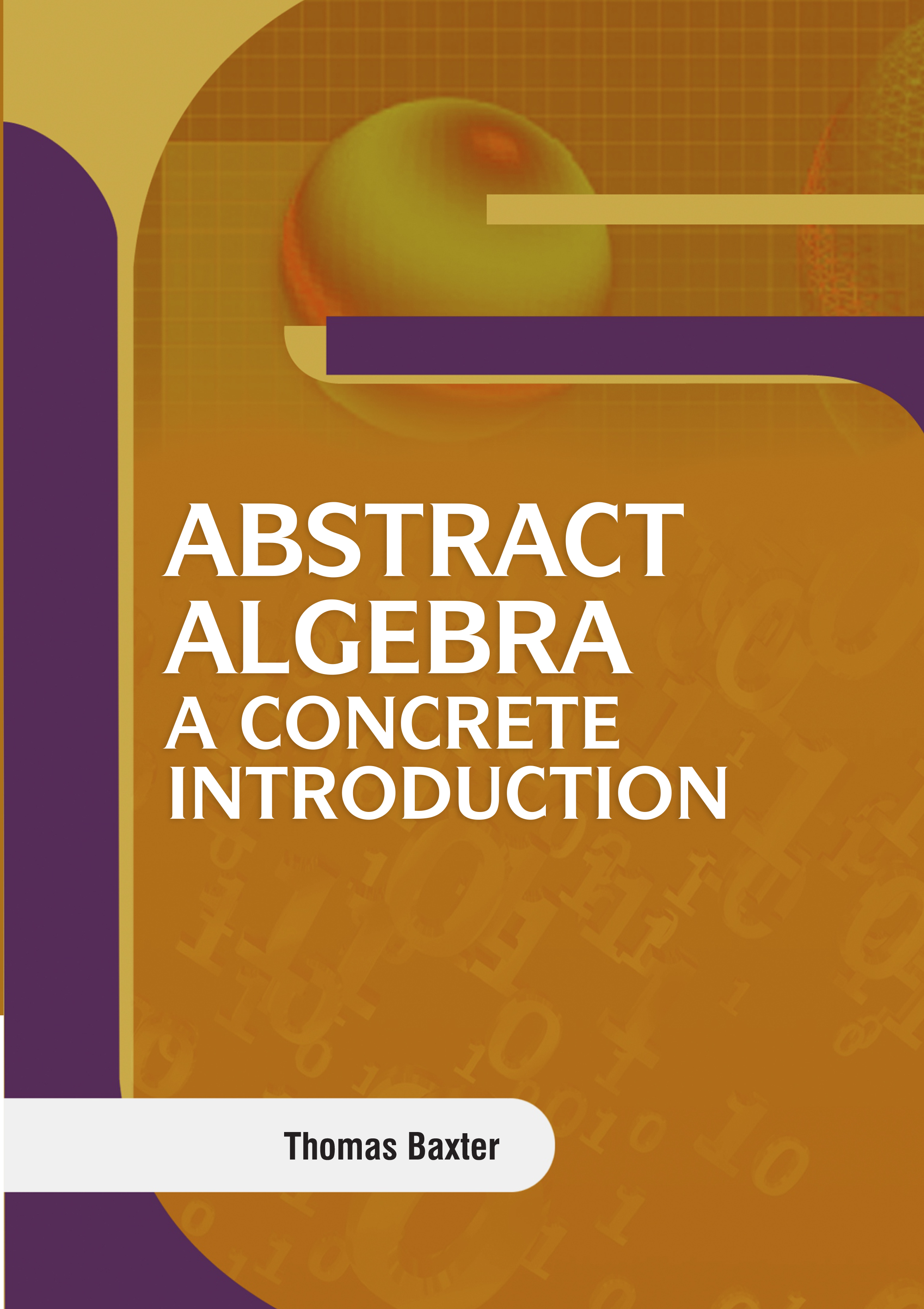
Abstract Algebra: A Concrete Introduction
by Thomas Baxter
| ISBN | 9789372426274 |
|---|---|
| Publisher | Digital Drive Learning |
| Copyright Year | 2026 |
| Price | $273.00 |

by Thomas Baxter
| ISBN | 9789372426274 |
|---|---|
| Publisher | Digital Drive Learning |
| Copyright Year | 2026 |
| Price | $273.00 |
Algebra is the mathematical language that consists of seven basic operations: addition, subtraction, multiplication, division, exponents, roots and logarithms. Since Algebra is the arithmetic that uses letters, it can be defined as a universal arithmetic. Abstract algebra is the set of advanced topics of algebra that deal with abstract algebraic structures rather than the usual number systems. The most important of these structures are groups, rings, and fields. Important branches of abstract algebra are commutative algebra, representation theory, and homological algebra. The binary operation of av, given above, is an example of an operation without an identity element. There is no number which when averaged with any chosen number gives that chosen number back again. True, for any chosen number there is a number that may be averaged with it to give the original chosen number back again, namely itself. In addition to developments in number theory and algebraic geometry, modern algebra has important applications to symmetry by means of group theory. The word group often refers to a group of operations, possibly preserving the symmetry of some object or an arrangement of like objects. In the latter case the operations are called permutations, and one talks of a group of permutations, or simply a permutation group. This book is written to meet the requirements of undergraduate students of several Universities. The topics included in the text fully cover the entire course prescribed by several Universities.